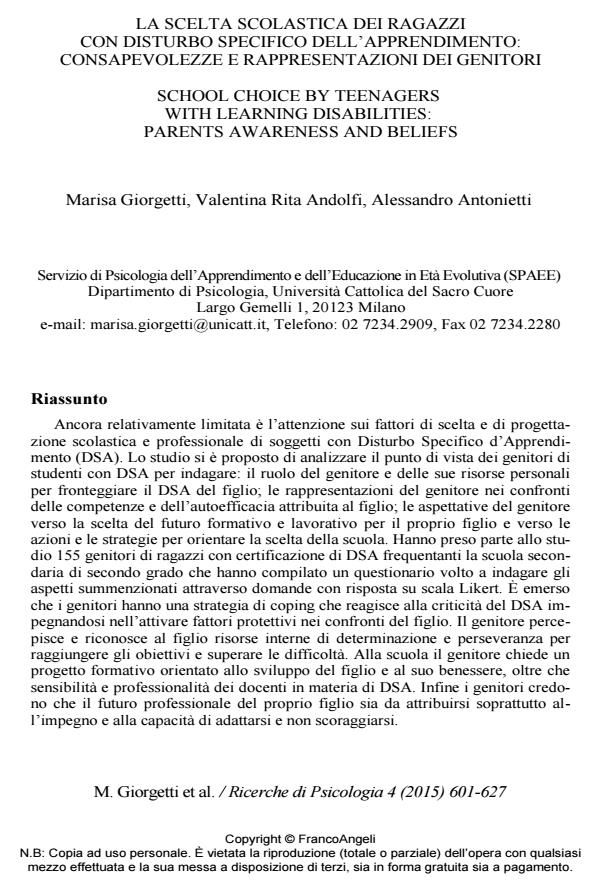School choice by teenagers with learning disabilities: parents awareness and beliefs
Journal title RICERCHE DI PSICOLOGIA
Author/s Marisa Giorgetti, Valentina Rita Andolfi, Alessandro Antonietti
Publishing Year 2016 Issue 2015/4
Language Italian Pages 27 P. 601-627 File size 0 KB
DOI
DOI is like a bar code for intellectual property: to have more infomation
click here
Below, you can see the article first page
If you want to buy this article in PDF format, you can do it, following the instructions to buy download credits

FrancoAngeli is member of Publishers International Linking Association, Inc (PILA), a not-for-profit association which run the CrossRef service enabling links to and from online scholarly content.
Limited attention has been paid to the criteria for school choice by individuals with learning disabilities. The study aims at examining the point of view of parents of adolescents with learning disabilities about the parental role and personal resources to cope with learning disabilities, parental representations of the skills and self-efficacy attributed to their son, parental expectations about their son’s school choice, and actions and strategies to guide the school choice. One-hundred and fifty-five parents of adolescent with certification of learning disabilities took part in the study. They completed a questionnaire devised to assess the above mentioned issues through self-report questions asking to rate agreement on a series of statements on Likert scales. It was found that parents have a coping strategy that primarily reacts to the learning disabilities by activating protective factors. Parents perceive a predisposition centered on resilience in their son, recognizing internal resources of determination and perseverance to achieve goals and overcome difficulties. Parents ask school for a project-oriented education to foster students’ wellbeing, as well as teachers sensitivity and professionalism in the field of learning disabilities. Finally, parents believe that their son's future career will depend mainly on the commitment and the ability to be flexible and to not get discouraged.
Keywords: Learning disabilities, educational guidance, resilience, well-being, self-efficacy, parents, school
Marisa Giorgetti, Valentina Rita Andolfi, Alessandro Antonietti, La scelta scolastica dei ragazzi con disturbo specifico dell’apprendimento: consapevolezze e rappresentazioni dei genitori in "RICERCHE DI PSICOLOGIA " 4/2015, pp 601-627, DOI: